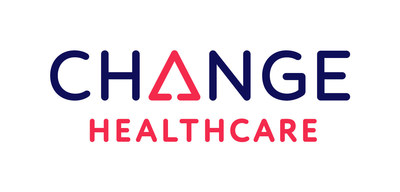

SAN DIEGO, June 18, 2018 /PRNewswire/ -- AHIP Institute & Expo—Booth #301—Value-based care is bending the healthcare cost curve, reducing unnecessary medical costs 5.6% on average while improving care quality and patient engagement—effectively starting to achieve the long-sought triple aim. Despite easing or ending of federal mandates, commercial lines of business are investing in value-based innovation, accelerating the decline of pure fee-for-service faster than previously projected levels. Indeed, today nearly two-thirds of payment are now based on value.

These insights and more are revealed in Finding the Value: The State of Value-Based Care in 2018, a new national study of 120 payers conducted by ORC International and commissioned by Change Healthcare. Third in a series, the research follows the company's 2014 and 2016 studies, which established a baseline for healthcare's transition to value and made it possible for this new research to look at trends and success metrics, and drill down into operational advancements since the first study was published four years ago.
The research's top 10 findings:
"Payers are finding the positive impact of value-based care as they scale these models—particularly episodes of care—and that's starting to bend the cost curve in a significant way," said Carolyn Wukitch, senior vice president and general manager, Network and Financial Management, Change Healthcare. "However, the demand to innovate at the pace of change is challenging payers. They lack satisfactory analytics and automation to better engage providers, operationalize their models, and assess effectiveness overall. And that's why we continue to invest in the technologies and services that will help our customers have the right tools in place to speed innovation and simplify complexity, which will be the deciding factors for success in this new era."
Finding the Value: The State of Value-Based Reimbursement in 2018 will help healthcare stakeholders see how payers are responding to changes and demands in an uncertain market, what reimbursement models and technology are being used, how they are being operationalized and scaled, what's working, what's failing, and where payers expect value-based care to be in the future.
The distribution of health plans was consistent with past studies commissioned by Change Healthcare. Respondents were comprised of senior executives–director level and above–across medical management, finance, technology, network management, analytics, and strategy, who were familiar with value-based care activities at their organization.
The study included 120 payers across a range of organization sizes, and included Managed Medicare, Managed Medicaid, and commercially focused; with 23% covering 250 to 499,000 lives, 44% covering 500,000 to two million lives, and 33% covering two million lives or more. Payers encompassed multiple regions, with 24% payer-centric, 21% provider-centric, 29% collaborative (where one or two payers and hospitals lead the region), and 24% fragmented (where there are no clear leaders among payers or hospitals).
The research report, Finding the Value: The State of Value-Based Reimbursement in 2018, is available at no charge at 2018VBCstudy.com. Executives from ORC International and Change Healthcare will jointly present the first exclusive look at the research results at the AHIP Institute & Expo 2018 session, "Value-Based Care Market Research: Inside Successful Programs," June 20th, 11:00 a.m. PDT, room #31AB. A limited print edition of the study's findings will also be available at the Change Healthcare booth (#301).
About Change Healthcare
Change Healthcare is inspiring a better healthcare system. Working alongside our customers and partners, we leverage our software and analytics, network solutions, and technology-enabled services to enable better patient care, choice, and outcomes at scale. As a key catalyst of a value-based healthcare system, we are accelerating the journey toward improved lives and healthier communities. Learn more at www.changehealthcare.com.
SOURCE Change Healthcare